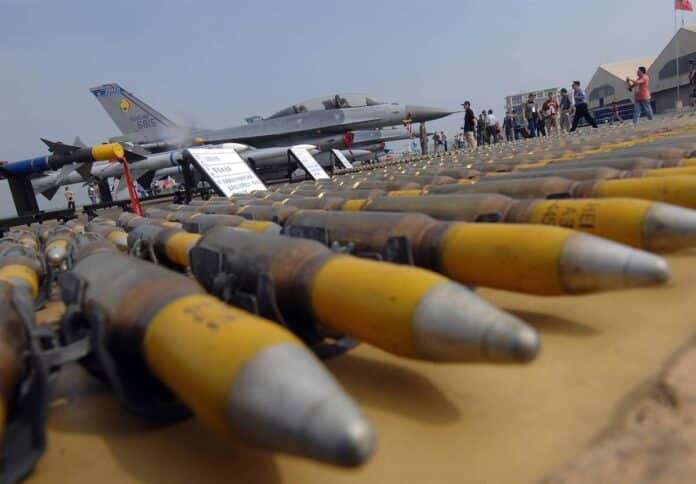With the subtlety of a drunk brass band in a monastery, the UK government has proudly announced it will splash a whopping £6 billion on missiles, rockets, drones, and a whole load of other bang-bang paraphernalia. That’s right, Britain is officially back in the business of building things that explode, not to help the NHS, not to tackle housing, but to ensure that the military-industrial complex is fed a steady diet of taxpayer pounds.
The plan, part of Sir Keir Starmer’s long-awaited Strategic Defence Review (or “Strategically Defend the Arms Industry Review,” as it’s affectionately known in Westminster cocktail circles), promises the construction of at least six weapons factories and the procurement of up to 7,000 UK-built long-range weapons. Details? You want details? Pfft. This is Britain. We announce first, panic later.
No one actually knows when the first factory will be built. Or what exactly it will build. Or where it’ll be. Or whether the missiles will be shaped like missiles, drones, or just expensive metaphorical boomerangs. But don’t worry, the important thing is we’ve made a splashy announcement, and that splash is soaked in glittering headlines, defence industry shares, and the warm embrace of “perpetual readiness.”
Of course, none of this can really kick off until the MoD appoints a new national armaments director, a role so powerful it sounds like it should come with a gold-plated cigar and a chair that swivels dramatically. The current stand-in, Andy Start, is doing two jobs, which may explain why, after nearly a year of “decisive leadership,” we’re still waiting for someone to decide on what type of drone to buy.
As John Healey, the Defence Secretary, solemnly declared, “A military is only as strong as the industry that stands behind it.” Which is either an inspiring call to arms or a very polite way of saying, “Lockheed Martin is our new national mascot.”
According to the Ministry of Defence, this “always on” production model is based on lessons from Ukraine. A lesson like, if your factories only operate Monday to Friday, 7am to 4pm, you’re probably not ready for the next world war. Thales in Belfast, for instance, is reportedly churning out N-LAW anti-tank missiles during working hours only, presumably because war conveniently pauses for tea breaks.
But worry not. With £1.5bn of the total spend going into building factories (eventually, somewhere) and the rest allocated to “more stuff that blows up,” we are promised 1,800 jobs and the warm, fuzzy security of bigger stockpiles. You know, for when the aliens inevitably arrive. Or the EU get uppity.
Critics, killjoys, the lot of them, have pointed out that this is all beginning to look a bit like a smoke show with less clarity than a fog machine at a rave. A source within the defence industry described the mood as one of “paralysis,” which is just what you want when national security is involved. Another insider said, “We’re all for defence spending, but we’d really like to know what we’re supposed to be building and when.” Silly them, expecting “plans” and “direction.” This is British procurement, where ambition always arrives fully weaponised and detail-free.
Meanwhile, Sky News is launching a podcast war-game scenario on June 10, simulating a Russian attack on the UK. No word yet on whether this is a public service, an audition for a Netflix series, or just a cunning ploy to get people to download a podcast. Either way, it sounds very reassuring.
So here we are: the Russians are coming, the Chinese are looming, and if Hollywood’s taught us anything, the aliens can’t be far behind. But the real winners? The arms industry. They’ve waited patiently for decades as post-Cold War Britain poured money into pesky things like schools and hospitals. Now, at last, the bombs are back in town.
No one knows exactly what we’re buying. No one knows exactly who’s in charge. But by god, it will be expensive, and that’s how you know we’re taking it seriously.
God save the King’s missiles.







